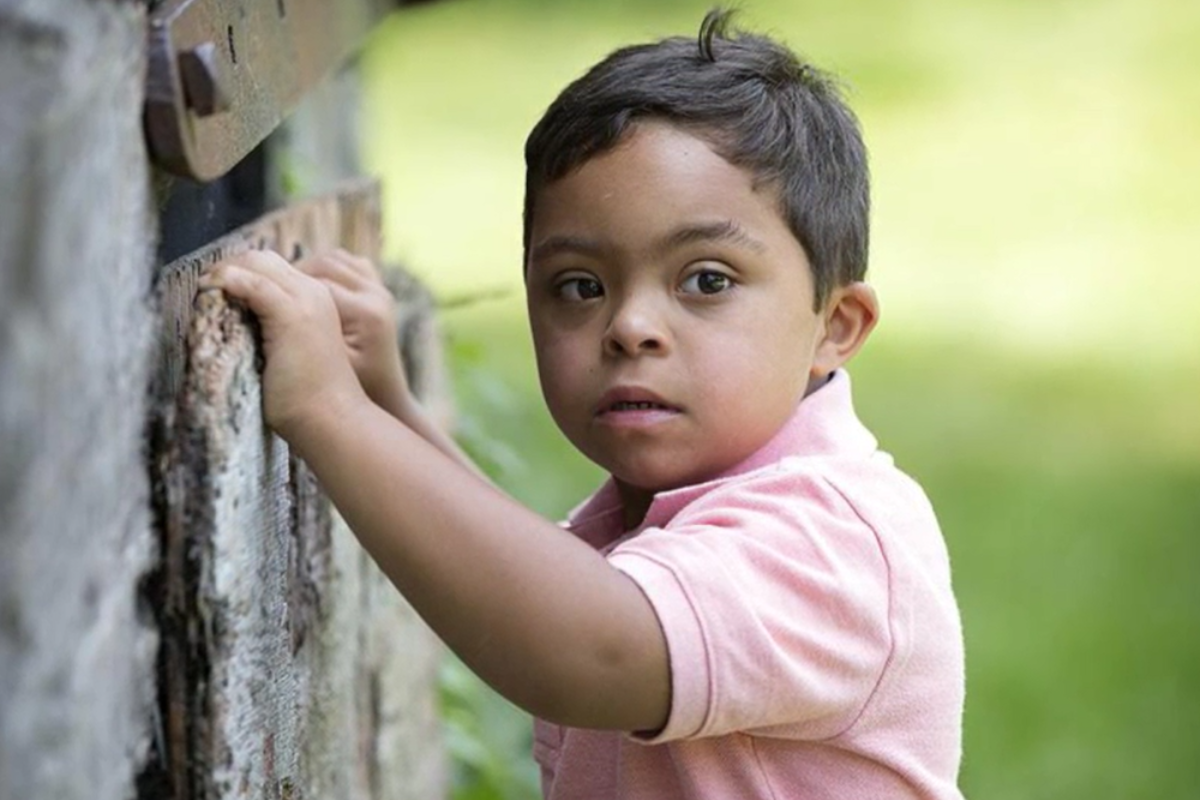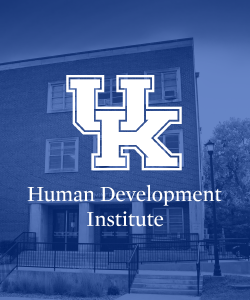The Lettercase National Center for Prenatal and Postnatal Resources at the University of Kentucky’s Human Development Institute (HDI) has been awarded a prestigious Eugene Washington PCORI Engagement Award by the Patient-Centered Outreach Research Institute (PCORI). Beginning in July 2022, the $249,582 award will be distributed over the next two years to convene meetings to determine and share recommendations for disseminating research to new and expectant Black and Hispanic parents of children with Down syndrome.
The first year of the grant will be carried out in three distinct phases. In the first phase, HDI’s Medical Outreach Director Stephanie Meredith and her team will work with 10 Black parents and 10 Hispanic parents of children with Down syndrome, along with leaders from six Down syndrome advocacy organizations across the US. This phase, according to Meredith, is about giving each family the chance to share recommendations for disseminating research to Black and Hispanic new and expectant parents. Meredith’s team will ask questions to better understand recommendations for sharing research, as well as barriers to resources and information and what could be done to address these gaps.
“Everybody in the process is being paid equitably for their contributions,” Meredith said. “A lot of times families get brought in, and they are asked for their expertise but only get minimal reimbursement. No, we are treating them like the experts that they are. [These parents are] getting paid the same rate as the professionals for 20 hours of work.”
Meredith is currently pursuing her doctoral degree in Public Health at Georgia State University. In earlier research, she received 243 responses to a research study on the Down syndrome diagnosis experience, but there were very few responses from Black parents–far fewer than are representative in the population.
“That was my first area of concern,” she said. “In our classes, we talk a lot about social justice, health equity and the importance of making sure everyone has access to the information that they need to make their healthcare decisions.”
The second phase of the project will bring in health equity experts to analyze and identify themes in the parents’ discourse in order to make recommendations for better health equity practices and how to ensure families are receiving and able to access the research and resources needed at the point of diagnosis.
“Our health equity experts also represent all of the diverse groups that we are asking about. We tried to reflect diversity in all of the different teams,” Meredith said.
In the third phase of the project’s first year, Meredith and her team will work with an interdisciplinary team of medical professionals including pediatricians, geneticists, genetic counselors and obstetricians. This team will look at the parents’ feedback along with the recommendations from the health equity team. They will explore how they can integrate these recommendations into their current practices and then offer these recommendations to their own respective organizations.
The second year of the project is focused on the dissemination of recommendations to medical organizations and clinicians. The recommendations made by the medical professionals will be used by Meredith and her team to build a white paper for medical and advocacy organizations about how to implement those recommended strategies for research dissemination to Black and Hispanic new and expectant parents of children with Down syndrome into their practices.
Meredith and her team will also build a learning module housed within HDI’s online Learning Center. The learning module will be reviewed by all 36 members of the research team, including the family members from the first phase.
Throughout the PCORI application process, Meredith worked closely with Michelle Hoverston, who played a big role in preparing budget and proposal documents, and Harold Kleinert, who encouraged the PCORI application and provided vital assistance throughout the process. Meredith believes a large part of the reason HDI was awarded the PCORI Engagement Award is because she, HDI, and her partnering organizations have demonstrated commitment to public health equity and marginalized communities for many years. Meredith has worked with HDI since 2012 and is the director of Lettercase National Center for Prenatal and Postnatal Resources. She had letters of support from organizations that have partnered with Lettercase for over a decade. Meredith is also the mother of a child with Down syndrome, which she notes as a reason she is so personally invested in this research.



